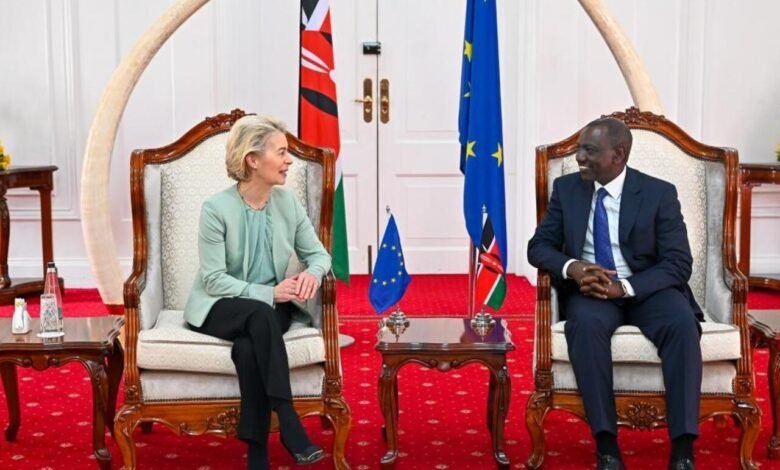
Coffee is one of the commodities impacted by EUDR which will deal a major blow to East African Countries.
The regulations came into force in June 2023 and will be applicable from January 2025 onwards.
Proof that covered commodities did not contribute to deforestation will be required to enter the EU market.
The approaching (European Union Deforestation Regulations) EUDR deadline is posing a significant downside risk for East African coffee producers.
This is due to the compliance costs and difficulties faced by the smallholder farmers prevalent in the region.
Notable Concerns in EUDR
The EUDR requires very detailed and extensive data on individual farms.
They include geolocation data for specific farmed plots and satellite evidence to prove that production has not led to deforestation.
“The increased amounts of bureaucracy and logistical planning thus required will weigh on smallholder farmers, who are unlikely to have the resources to be able to comply,” says Fitch Solutions in its detailed report released on March 28, 2024.
Also Read: Kenya Sets Aside Ksh.5.9 Billion to Boost Coffee Farming
The digital mapping of supply chains requires access to technology such as geographic polygon mapping.
It also requires GPS as well as strong internet coverage, which are lacking in many East African small-scale coffee farms.
Another concern that relevant industry bodies have voiced is that the definition of deforestation provided by the EU can differ to the legal definitions of deforestation in coffee-producing countries, resulting in potential discrepancies and challenges for producers.
According to Bloomberg, a news provider, the European Coffee Federation issued a letter to the European Commission.
The letter was asking for a delay in the implementation of the EUDR, warning that ‘the disruptions will be shattering’, particularly for smallholder producers if this were not to happen.
Ethiopia, Country Most Affected
The effects of the EUDR are already being felt by coffee producers in Ethiopia which has witnessed coffee orders decline.
This is due to doubts surrounding the country’s ability to comply with the EUDR – according to Ethiopian Coffee Exporters Association.
According to the Coffee Barometer, a biennial report published by several NGOs operating in the sector, most coffee currently produced in Ethiopia will be unable to comply with the new law by the time it comes into effect.
This will be due to logistical and financial barriers and similar concerns existing for coffee production in Uganda.
Fairtrade International, a group which provides certification to products, also updated its Coffee Standard in February 2024 to comply with, and in some areas surpass, the EUDR requirements.
The Intercontinental Exchange (ICE) has also announced the incoming implementation of a traceability service to help coffee and cocoa firms abide by the EUDR.
The Ugandan government has also developed a plan to ensure that coffee produced in the country complies with the EUDR by establishing a National Coffee Traceability system.
Kenya, Uganda Coffee Export Volume to EU
According to the Uganda Coffee Development Authority (UCDA), the government has committed to provide $3.3 million in development funds to the system.
About 41.5% of coffee exports from Ethiopia, Uganda, Tanzania and Kenya were destined for the EU in 2022.
Coffee accounted for 8.8% of total exports for Uganda in 2022, but within this 58% was exported to the EU, highlighting the potential impacts of the regulation on the country.
For both Tanzania and Kenya, a high proportion of coffee exports were directed to the EU in 2022 (30.3% and 46.1%, respectively) but coffee exports only accounted for 2.7% and 2.0% of total exports revenue.
In 2022, 5.4% of the EU’s imported coffee was sourced from the four countries.
“We therefore believe that, although the EUDR is very relevant and concerning for East African coffee producers because a significant proportion of their exports is directed to the EU.
The EU market has a wide range of suppliers and therefore traders and importers are better placed to diversify their trading partners if East African partners are unable to comply with the new regulation.”


